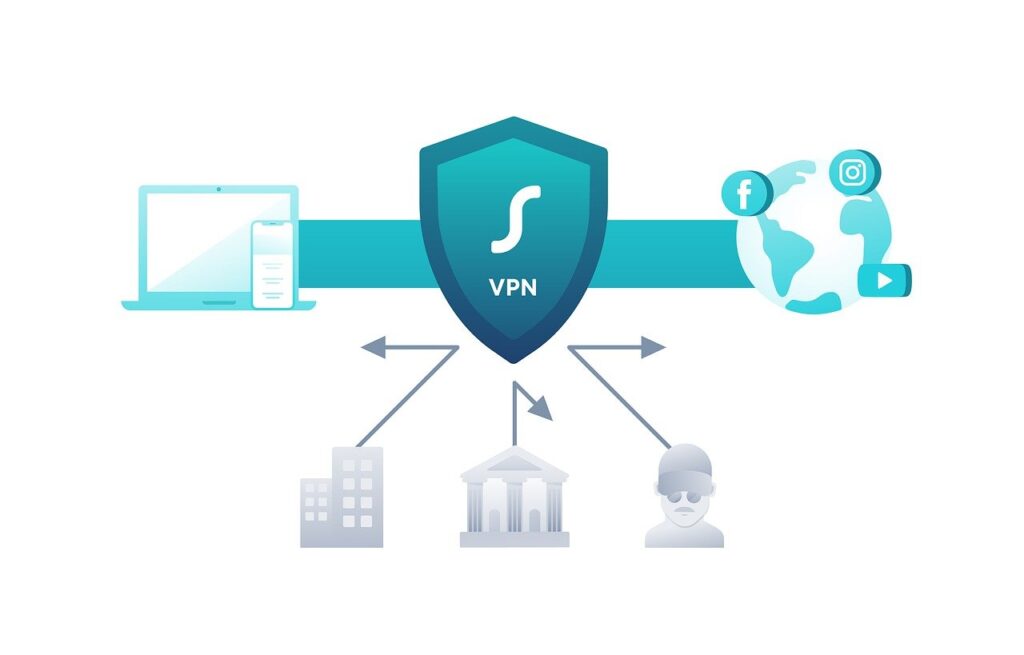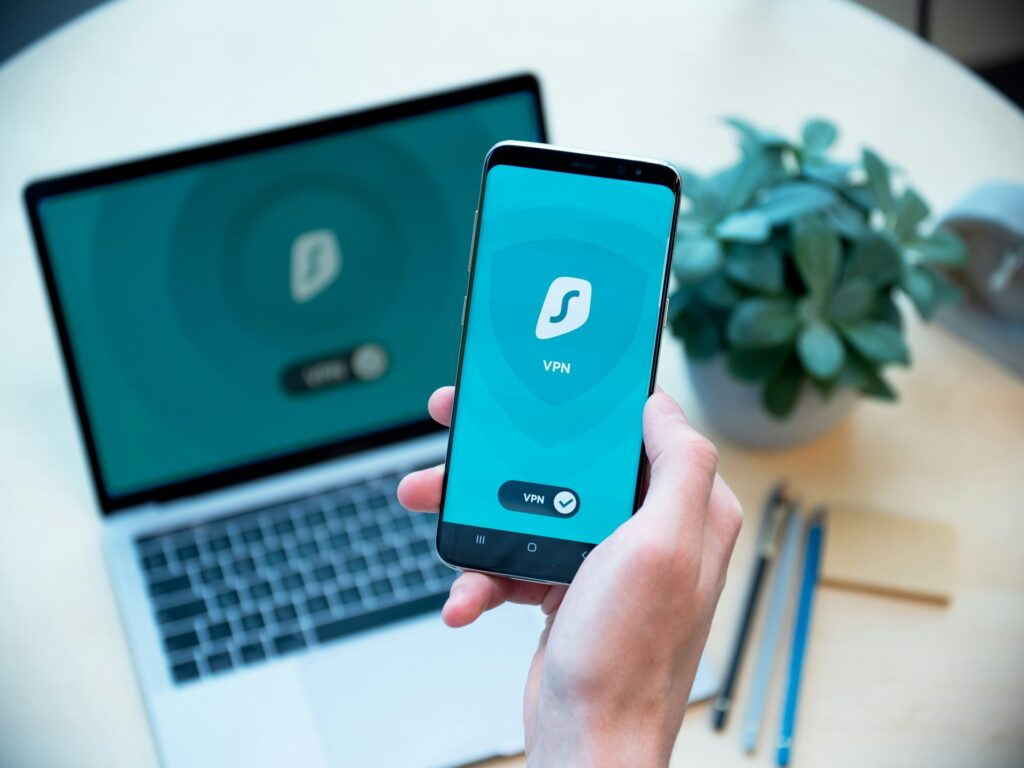Data breaches and cyber-attacks are a major concern for businesses and individuals. The common idea about data breaches is that it only happens to large-scale businesses. However, it is mostly small-scale businesses that see a negative impact of data breaches.
Cyber-criminals can access your PC (Personal Computer) to steal sensitive data. They can also carry out a ransomware attack as well to lock you out of the computer and demand ransom for unlocking it. Nevertheless, choosing a VPN for PC can help avoid all of that trouble.
So, how does a VPN work in protecting your PC? Why should a small business get one? And how can you choose the best VPN for your PC? We’ll discuss all these things in this guide to give you an idea about how VPNs can protect your PC.
How Do VPNs Work?
When you connect to a VPN, it routes your internet traffic through a remote server operated by the VPN provider. This process will mask your IP address. As a result, it will appear as though your internet activity is originating from the VPN server’s location rather than your actual location. Here’s a breakdown of the process:
You connect to the internet through your ISP. Next, you launch your VPN client software and select a server location. The VPN client establishes an encrypted tunnel between your PC and the VPN server. All your internet traffic passes through this tunnel, ensuring it is secure and private.
How VPNs Protect Your PC: Detailed Mechanisms

Now that we understand the basic operation of using a VPN, let’s dive deeper into the specific mechanisms through which a VPN protects your PC.
Encryption Protocols
VPNs use various encryption protocols to secure your data. Some common ones include:
- WireGuard: A newer protocol that aims to be faster and more secure than existing options. It uses state-of-the-art cryptography and is designed to be easier to audit.
- OpenVPN: This is one of the most popular and secure VPN protocols. It uses SSL/TLS for key exchange and can handle various encryption standards like AES-256.
- L2TP/IPsec: Layer 2 Tunneling Protocol (L2TP) combined with IPsec is another widely used protocol that offers robust security features.
- IKEv2/IPsec: Internet Key Exchange version 2 (IKEv2) is known for its stability and speed. When combined with IPsec, it provides a high level of security.
Kill Switch Feature
Many VPNs offer a kill switch feature, which is a critical security measure. If your VPN connection drops unexpectedly, the kill switch will automatically disconnect your PC from the internet. This prevents your data from being exposed to the public internet without the protection of the VPN.
DNS Leak Protection
DNS leaks can occur when your internet traffic bypasses the VPN tunnel and is sent directly to your ISP’s DNS servers. This can expose your browsing activities and real IP address. VPNs with DNS leak protection ensure that all DNS requests are routed through the VPN, maintaining your privacy.
Split Tunneling
Split tunneling allows you to choose which applications or traffic should go through the VPN and which can use the regular internet connection. This is useful if you want to maintain high speed for certain activities while keeping others secure.
Multi-Hop VPN
For users seeking an extra layer of security, some VPNs offer multi-hop or double VPN features. This routes your traffic through multiple VPN servers, further obscuring your online activities and making it extremely difficult for anyone to trace your data back to you.
What Should You Consider When Choosing a VPN for PC?

Choosing a VPN is imperative to keep your data on your PC safe from prying eyes. But with so many VPNs available, picking the best one is a challenge. Nevertheless, here are some factors to consider when choosing a VPN for a PC.
Security and Encryption
The main feature of a VPN is to secure your internet connection. Therefore, you should ensure the VPN uses strong encryption protocols such as OpenVPN, IKEv2/IPsec, or WireGuard. These protocols offer robust security and performance. Also, it should have a no-logs policy. A strict no-logs policy ensures that the VPN provider does not keep records of your online activities.
Also read: Your Guide to the Best Free VPNs in 2024: Safety Doesn’t Have to Cost.
Speed and Performance
VPNs can decrease the speed of your internet connection because of the encryption process. Therefore, you should look for a VPN that offers high-speed servers and more server locations. Also, ensure the VPN offers unlimited bandwidth to avoid slow speeds.
Ease of Use
A user-friendly VPN is crucial, especially for those who are not tech-savvy. The VPN should have an intuitive interface and must support all your devices, including Windows, MacOS, iOS, Android, and more.
Pricing
There are free VPNs available that you can choose to go with. However, you will see some serious issues with their efficiency and performance. That being said, it is important to look around and find a cost-effective solution for your business.
How Can You Evaluate VPN Providers?
Knowing the essential features to consider when choosing a VPN will help you shortlist a few of them. Once you do that, there are some steps to evaluate VPN providers and choose the best one:
- Look for reviews from reputable sources and user ratings to get an idea of the VPN’s performance and reliability.
- Most VPN providers offer a free trial or a money-back guarantee. Use this period to test the VPN’s speed, reliability, and ease of use.
- Consider the cost of the VPN and compare it with the features offered.
- Test the VPN provider’s support by asking questions via live chat, email, or phone. Responsive and knowledgeable support can make a big difference.
Final Words
A VPN is an essential component of your digital security toolkit. It is a powerful tool for protecting your PC from various cyber threats and ensuring your online privacy. Nevertheless, choosing a reliable VPN provider is vital. Once you have that, you can set it up on your PC, and enjoy a safer internet experience.


